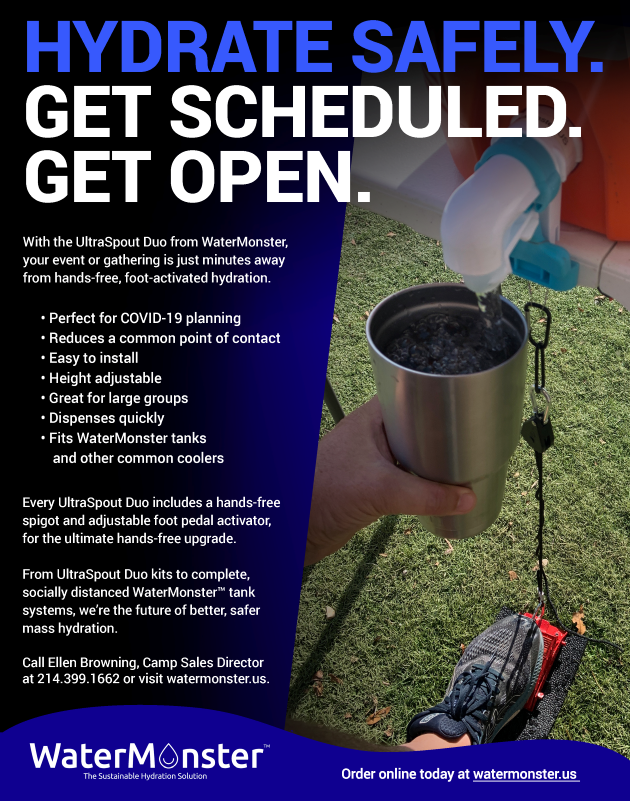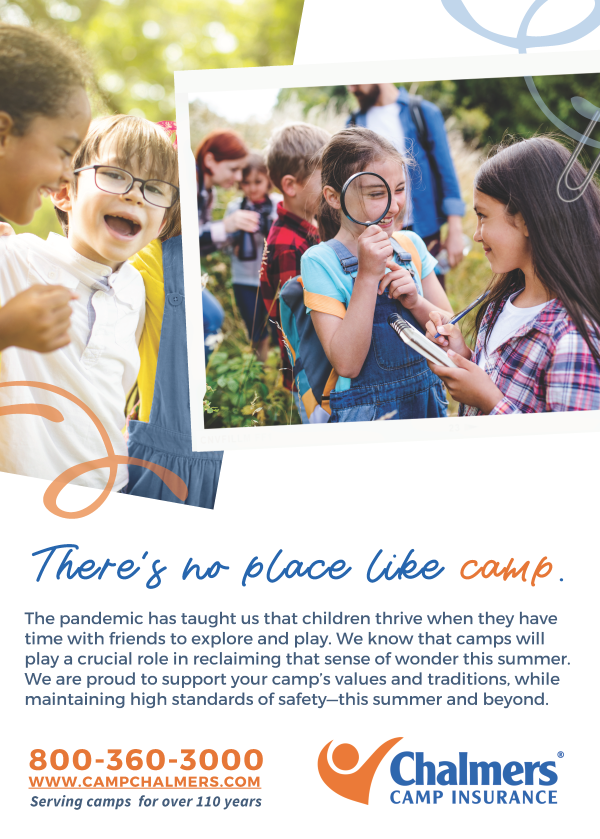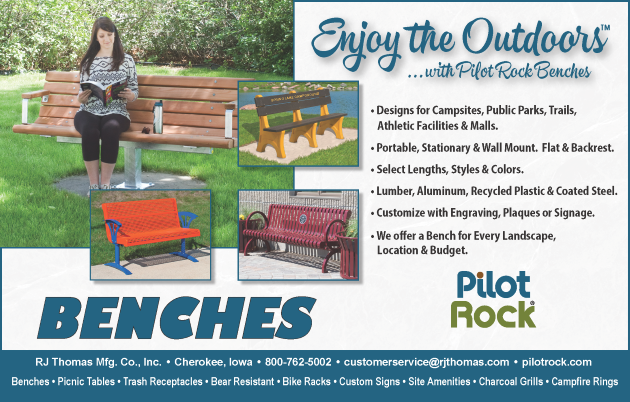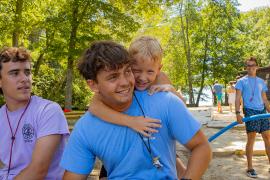As of January 2020, there were 850,000 active podcasts with over 30 million podcast episodes. If you’re one of the 155 million US residents who has listened to a podcast (55 percent of our population), then you might enjoy starting one for your camp.
According to Oberlo, “For business owners, podcasts can be an excellent way to develop an intimate connection with listeners and potential customers. They’re hearing you speak, one on one, which helps to humanize your relationship in a way that your written content can’t. Plus, offering different ways for your audience to engage with your content and your brand is never a bad thing” (Virgillito, 2020).
Step 1: Decide If Podcasting Is a Good Fit for You and Your Camp
Here are a few things to consider before you purchase your microphone and start broadcasting.
Hosting a podcast is a lot of fun, but it takes some time and planning to produce a quality product. According to Inside Radio (2020, July 9), failure to do so had created approximately 24,517 “dead” podcasts as of July 2020.
Do you have the time and/or money to produce a podcast? Consider whether a person or team at your camp has both the time and interest in doing this. Also, will your podcast host or team do all the production in-house or will you outsource some of the work?
Step 2: Decide the Primary Audience You Want to Reach
Will you gear your podcast toward your campers, parents, staff, or alumni? Do you want to create something that will appeal to brand-new families, longtime camp community members, or both?
Before you determine your podcast’s topic(s) and format, you need to decide who your intended audience is.
Step 3: Identify What Topic(s) You Want to Cover
If you’re doing a podcast that’s under your camp’s umbrella, you’ll want to make sure the topic/focus is in-line with your camp’s values. For example, if your camp runs an outdoor adventure-focused program, you might want to cover outdoor adventure-specific topics.
Step 4: Determine the Format and Frequency of Your Podcast
If you’re interested in starting a podcast, you’re likely an avid podcast listener yourself. What formats excite you? Think about what structure will work best for your camp. Here are some options:
- Interview format — a question-and-answer setup with the host talking with a unique guest each week
- Solo format — a host is the only voice on the show and typically shares personal and specific expertise or stories
- Co-hosted format — two or more hosts discuss and sometimes debate a predetermined topic
- Panel format — a host moderates a larger group of guests using conversation starters or a question-and-answer setup
How often will you release a new episode? In the podcast world, consistency is key. Once you have established your podcast, keep to a regular release schedule. Doing a weekly podcast can be challenging, especially if that requires coordinating multiple guests. Consider starting with a new podcast release twice a month.
You might also consider changing your format during the summer when more parents are paying attention to your camp’s communication efforts. Could you shift to a camper-produced podcast in the summer? Maybe you can offer a podcast that talks about highlights from the past week at camp. If you can get parents subscribing and downloading while their kids are at camp, then when you switch to an off-season podcast format, you’ll still show up on their phones.
Will you include any music, and/or a standard intro and outro in each episode, or will you follow a “one recording” format in which you record one audio file for use as your podcast? A little bit of music to break up your content or transition between segments can make a podcast feel more professional. Note that music rights can differ across formats, and music that you use without copyright issues in videos may have different rules for podcasting.
|
Check out other summer camp-related podcasts to see what they cover, such as:
|
Step 5: Pick a Name and Create Your Visual Identity
This step is actually more important than it may seem, so be sure to put adequate thought into your podcast moniker. You want something that identifies your camp, is easy to search for, and is unique.
Yes, a podcast is an audio format, but services such as Apple Podcasts and Spotify require cover art in specific sizes for advertising purposes. Podcasts without art will not be allowed on their platforms. And if you’re a podcast listener, you know how important that art is when you’re looking for your favorites or a new topic of interest. So make it good.
Step 6: Plan Your Episodes
Plan your entire first season, if possible. Use a spreadsheet to:
- Lay out when you’re going to cover which topics
- Track interview subjects
- Plan recurring segments
- Make sure you’re not repeating yourself when you don’t want to
A plan will also help you decide if you really have enough content for a podcast — or if what you are planning might be better presented as a video or social media series.
Step 7: Organize Your Equipment and Decide How Production Will Work
You don’t need much equipment for your podcast — just a computer to record (and edit on if you’re doing that yourself), a microphone, and headphones. Make sure you invest in or have access to a good microphone; don’t just rely on the one built in to your computer. Audio Technica has a quality microphone for around $100, and if you do a little research, you’ll find many other options with good reviews.
Do you have the time and ability to edit your podcast audio yourself, or are you going to outsource the editing and production? You can use tools such as Audacity or GarageBand to edit yourself, or you can outsource to freelancers (audio editors are listed on Fiverr and other freelance sites) or to a podcast production company.
Step 8: Choose Your Podcast Host Site and Learn the Upload Process
A simple way to get your podcast out to multiple places and potential audiences is to use a major podcast hosting service that links to additional web locations. Both Blubrry and Libsyn are popular options, but many other podcast hosting sites are out there.
You can also host your podcast on your camp’s website. This is fine for smaller (shorter) podcasts, but if you plan to post many episodes or become the next Armchair Expert in the camp space, it’s probably better to pay for hosting so you don’t overwhelm your website storage. Self-hosting may be the most cost-effective way, however, to test-drive a podcast to see if it is something that can really work for your camp before you make a larger investment.
Step 9: Record a Few Episodes Before You Share
A best practice in the podcast industry is to record a few episodes and have them ready before you launch your show. You can market your upcoming podcast with teasers about what’s coming up to generate excitement about the launch.
Step 10: Upload and Share
You’re ready to share your podcast with the world! Share each episode through all of your usual communication channels and enjoy watching your listener numbers rise as you produce high-quality, camp-related content that appeals to your community.
Most importantly, have fun creating and sharing your podcast!
Additional Resources |
Photo courtesy of Rainbow Trail Lutheran Camp, Nathrop, CO.
Audrey Monke, with her husband Steve, has owned and directed Gold Arrow Camp in Lakeshore, California, since 1989. Audrey is the host of the Sunshine Parenting podcast, which features interviews with parenting authors and experts. Audrey shares resources for parents and youth development professionals about summer camp, parenting, and happiness on her website, sunshine-parenting.com. Audrey’s book, Happy Campers: 9 Summer Camp Secrets for Raising Kids Who Become Thriving Adults (Hachette-Center Street, 2019) shares strategies for bringing the magic of camp home.
Andy “Soy” Moeschberger has been a camp director at Gold Arrow Camp (GAC) since 2015 and is the host of the GAC POGCast. He spent the first 15 years of his child development career teaching high school social studies before transitioning to camp full-time. He serves on the American Camp Association, Southern California/Hawaii Local Council of Leaders and the board of the Western Association of Independent Camps. He has been awarded both the ACA, Southern California/Hawaii and National ACA Service Award for his work with the California State Legislature. He is a proud Gryffindor who ended up married to a Slytherin.
References
Inside Radio. (2020, July 9). More podcasts have launched in 2020 than in all of 2019; Now 1.3 million shows. Retrieved from insideradio.com/free/more-podcasts-have-launched-in-2020-than-in-all-of-2019-now-1-3-million/article_066ea812-c1aa-11ea-a755-5ba90858d911.html#:~:text=Listen%20Notes%20defines%20a%20show,tracking%20lower%20than%20last%20year.
Virgillito, D. (2020, October 17). What is a podcast? Learn how to start a podcast today. Oberlo. Retrieved from oberlo.com/blog/what-is-podcast





